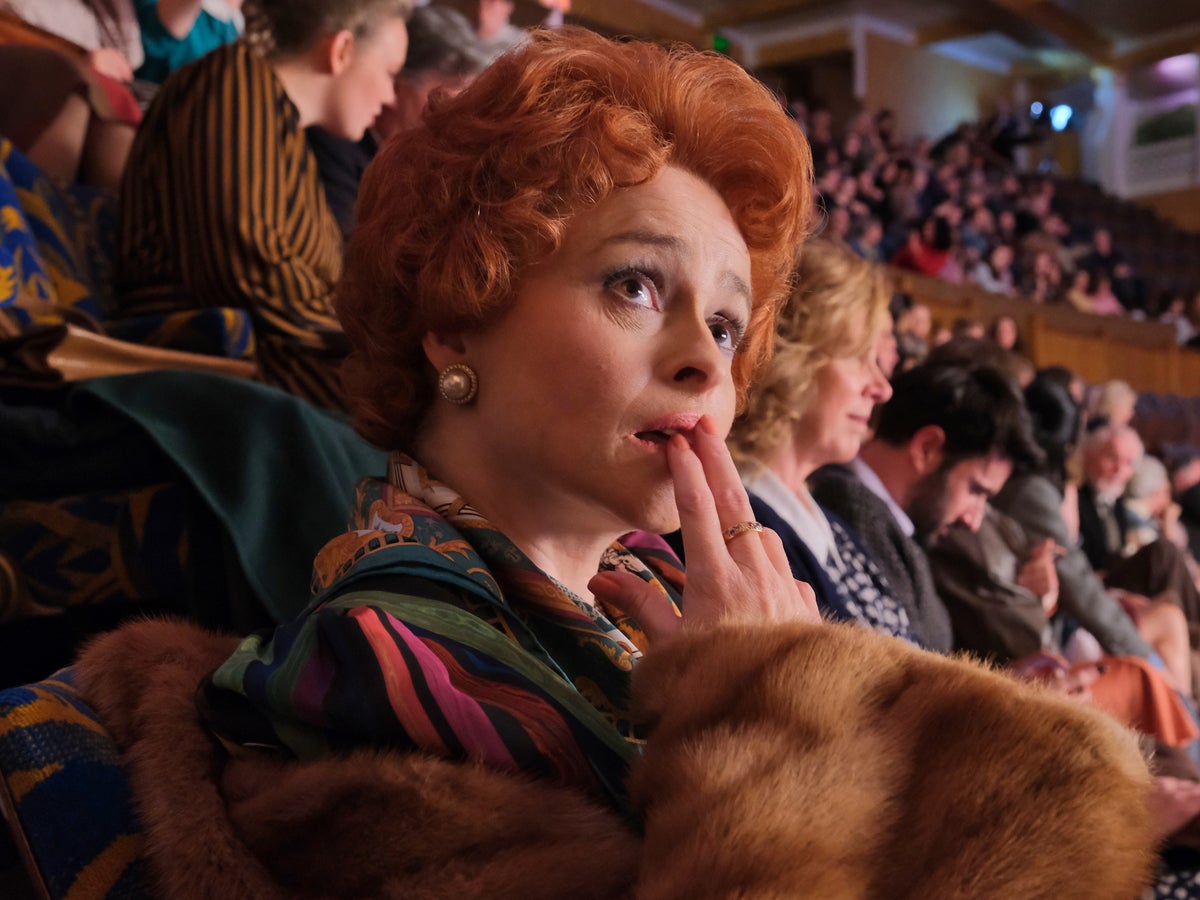
Soap operas are microcosms of life. Streets and squares, farms and motels; all the triumph and despair of human existence compressed into a few houses, a few lives. It’s no surprise then, that Russell T Davies – on a hot streak afterA Very British Scandal and It’s a Sin – has turned his attention to the Golden Age of the British soap opera. His three-part drama, Nolly, streaming now on ITVX, has a similarly telescopic scale: a portrait of a woman, and a portrait of a nation.
Nolly is the story of Noele Gordon (Helena Bonham Carter), the star and matriarch of Crossroads – the Midlands-based soap opera that ran from the 1960s through to the end of the Eighties. Nolly, as everyone calls her, is a legend: loved by co-stars, adored by the public, tolerated by directors. But a new era is approaching, and executives at ATV (one of the broadcasters who would eventually be consolidated into ITV) decide to axe her. “All good things must come to an end,” announces Charles Denton (Tim Wallers), the controller of programming, almost licking his lips at the thought of putting the low-rent spectacle out of its misery.
The fact that, 40 years later, ITV is producing a lavish, star-studded primetime drama about this minor incident from soap history speaks to its cultural permeation. And Davies does capture the hysteria surrounding the sacking. Chanting protestors gather outside the studio, newspaper headlines decry the decision, people stare at Nolly, wide-eyed, and offer condolences like she’s bereaved. And she is grieving. “I don’t want her to die,” she tells producer Jack Barton (Happy Valley’s Con O’Neill). “Please, don’t kill me. Change the story. Save my life.” In a world where every new TV commission seems designed to lure in younger audiences, it’s refreshing to watch something clearly aimed at people who vividly remember 1981; all the same, the show makes few concessions to viewers who might not have previously heard of Gordon, or even Crossroads.
Bonham Carter is pitch-perfect as Nolly, showing her fragile but resilient ego as it transitions through the end of her career. “I wasted all those years,” she laments. “I kept my life empty.” And yet this is not a sad sack story of a washed-up has-been (she isn’t, for example, Rose from Gypsy, the role she takes after the Crossroads exit), but a love letter. A love letter both to Gordon herself and to a world where little things mattered, where a soap opera could stop the presses.
The problem with Nolly, which is utterly charming, is that it cannot resist falling into prodding sentimentality. Particularly egregious examples include a sequence where Nolly and co-star Tony (Augustus Prew) ride a bus packed with an illustrative cross-section of society (“Men!” Nolly exclaims. “Upstairs, in their suits and their pipes and their looks!”) and another where Gordon finally recounts the story of her doomed throuple with a theatre impresario and his wife, while her acting troupe watches on, slack-jawed, and the strings swell. Saccharine doesn’t begin to cover it.
And there’s no mistaking that this is a hagiography. For all that she was branded a “difficult asset” by ATV executives, it’s clear that Davies and his cast have a unanimous enthusiasm for Gordon’s no-nonsense, feminist perspective on the industry that jilts her. Viewers unfamiliar with the cultural moment it depicts might struggle to get past the opening episode, but those that do will find something treacly yet efficiently moving, with Bonham Carter on sensational form.







